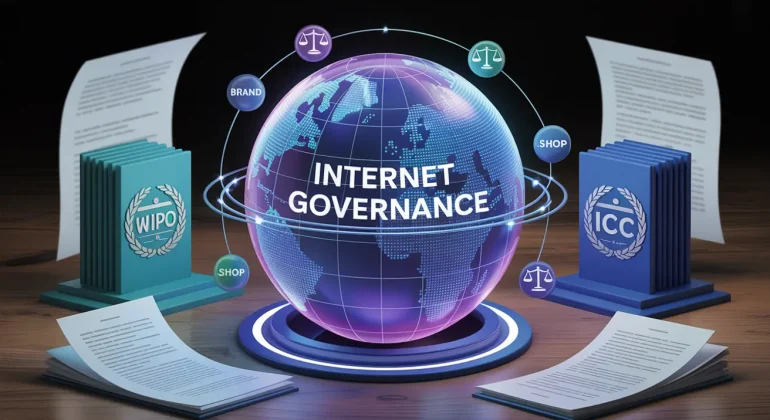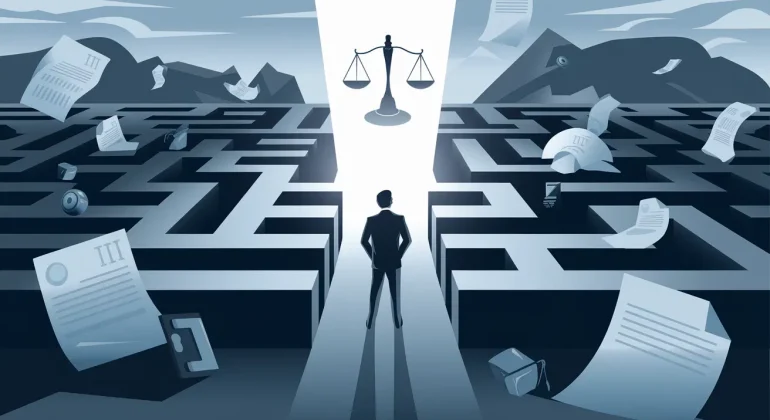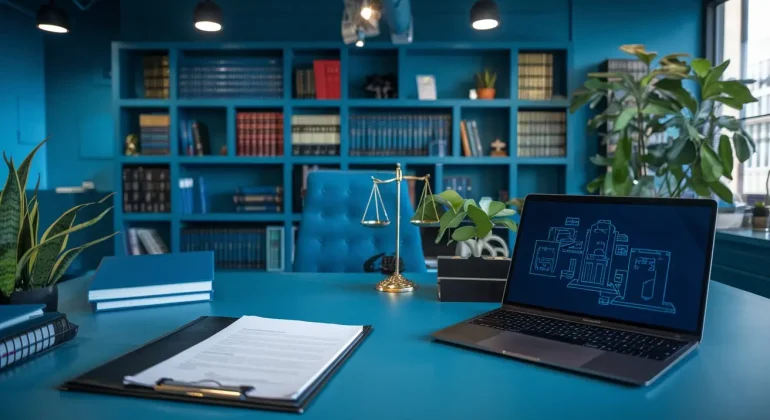Artificial intelligence and intellectual property: how to protect your creations and avoid disputes?
A technological revolution, a legal vacuum
Artificial intelligence (AI) is already disrupting our modes of creation and innovation. In seconds, software can generate an image, compose music, write text or contribute to a scientific discovery.
But one question persists: who owns these creations?
Intellectual property law, shaped at a time when the author or inventor was necessarily human, finds itself confronted with grey areas. The European Union, United States and United Kingdom are multiplying clarifications, but rules differ according to jurisdictions.
For over 20 years, Dreyfus firm has supported companies, laboratories, creators and startups in protecting and valorizing their innovations. This article reviews the current legal framework and proposes practical solutions to secure your AI-generated creations.
AI and copyright – who is the real author?
Originality, central criterion in European law
Under European Union law, a work is protected if it is original, meaning it reflects its author’s personality (Directive 2001/29/EC, known as Infosoc). A creation produced solely by an algorithm, without significant human intervention, does not meet this criterion.
Example: An AI generates a logo in response to a simple prompt (“draw me a red vinyl with a black circle”). This raw visual has no autonomous legal protection. However, if a designer combines several outputs, makes creative choices and retouches the work, the human contribution can justify copyright protection.
First disputes
In the United States, the Copyright Office refused in 2023 to register 100% AI-generated works. In Europe, legal actions have been initiated by photographers and illustrators denouncing the use of their images in training datasets without authorization.
Trademarks and artificial intelligence – opportunities and risks
AI-generated trademarks: a false good idea
Many companies test AI to generate brand names or logos. But these creations pose two problems:
- Proposed names are often too descriptive or generic (e.g., “EcoWine”)
- Logos may reproduce, even involuntarily, forms close to existing creations
Result: Risk of refusal by EUIPO or national offices, or even litigation for infringement.
AI as a protection tool
AI can also become a strategic ally. Some firms already use algorithms to monitor trademark filings and detect imitations (spelling variations, similar logos). Dreyfus relies on these technologies but adds the legal expertise essential to any decision.
Patents and AI – who is the inventor?
The DABUS case
The DABUS affair marked a turning point: an AI had generated two inventions. Its designer, Stephen Thaler, attempted to file patents designating the AI as inventor.
- The USPTO (United States), EPO (Europe) and national offices refused
- In 2023, the UK Supreme Court confirmed that only a human being can be an inventor
Consequences for companies
“AI-assisted” inventions remain patentable, but a human inventor must be designated. To secure your patents, document the human inventive contribution (laboratory notebooks, identified contributions).
Major legal risks related to AI
Copyright violation in datasets
EU Directive 2019/790 on copyright in the digital single market (DSM) introduced exceptions for text and data mining (TDM). But it allows rights holders to oppose it via machine-readable technical opt-out. If an AI is trained on protected works without respecting this opt-out, litigation risk exists.
Involuntary infringement
An AI can generate a logo or visual close to a protected work. If this content is commercially exploited, the company can be prosecuted, even in good faith.
Contractual liability
Who is responsible in case of dispute? The AI editor, user or company exploiting the output? Answers vary according to jurisdictions, but one thing is certain: contracts must specify these responsibilities.
International mapping – EU, USA, UK
European Union
- Infosoc Directive 2001/29/EC: requires human originality
- DSM Directive 2019/790: frames TDM with opt-out possibility
- AI Act (2024): first European regulation on AI. It classifies systems by risk level and requires general purpose AI model (GPAI) providers to publish training data summary
United States
- Copyright Office: works generated without human contribution refused
- USPTO: 2024 guidance, “significant” human contribution mandatory for patents
United Kingdom
- Supreme Court 2023: an AI cannot be an inventor
- Ongoing debates on copyright, but no autonomous legal recognition of AI works
AI risk matrix
| Usage | Risk | Recommendation |
| Marketing creation (texts, images) | Medium | Verify similarities before distribution, document human part |
| Logos and graphic charts | High | Prior art search before filing, visual audit |
| R&D and patents | Medium | Document human contribution in files |
| Fine-tuning on third-party data | High | Verify dataset rights, TDM opt-out, licenses |
Essential contractual clauses
- Output ownership: assignment of rights on human contributions, clarifying possible non-protection of purely AI outputs
- Warranties and indemnities: service provider commitment to limit infringement risk and indemnify in case of dispute
- Dataset and TDM: declaration of compliance with DSM directive exceptions and opt-out respect
- Inventorship: documentation of human contribution in any patent filing
90-day compliance roadmap
- Week 1-2: AI usage mapping
- Week 3-4: IP audit (copyright, trademarks, patents)
- Week 5-6: internal AI charter drafting
- Week 7-8: similarity controls implementation and dataset registry
- Week 9-12: strategic filings, international monitoring, team training
Dataset audit checklist
- Lawful origin of sources
- Respect for TDM opt-out (DSM directive)
- Licenses compatible with commercial use
- Evidence and technical logs conservation
- Dataset summary publication for AI Act compliance
Key figures and trends – AI & intellectual property
- AI market: The European Union estimates the global AI market will reach over €300 billion by 2030, with annual growth of nearly 20% (European Commission, 2024)
- Litigation: According to WIPO, domain name dispute procedures increased by over 20% in 2023, notably due to cybersquatting around AI-related terms
- Copyright: In the United States, over 50 AI-generated work registration applications have been rejected by the Copyright Office between 2022 and 2024
- Patents: The European Patent Office (EPO) noted a 7% increase in AI-related patent filings in 2023, particularly in health, chemistry and telecoms
- Business confidence: A European Commission survey (2024) reveals that 62% of European executives consider legal uncertainty as the main barrier to AI adoption
The Dreyfus approach
Dreyfus firm positions itself as a pioneer in supporting companies facing AI challenges:
- Legal analysis: practice audit and risk identification
- IP strategy: targeted filings, contracts, internal charters
- Litigation: expertise in complex disputes, in France and internationally
- Regulatory monitoring: constant tracking of developments (AI Act, DABUS case law, European directives)
Conclusion – Anticipate to innovate serenely
AI is a tremendous opportunity, but it requires increased legal vigilance. Between copyright, trademarks, patents, datasets and new AI Act obligations, companies must arm themselves with solid solutions.
With Dreyfus firm, transform legal complexity into sustainable competitive advantage.
AI x IP Flash Audit: In 10 days, we identify your risks, draft your clauses and prioritize your filings.
FAQ – AI and intellectual property
Is an AI-generated work protected in Europe?
No, unless significant human intervention makes it original (Infosoc directive).
Can I file an AI-generated logo as a trademark?
Yes, but only after a distinctiveness and similarity audit.
Can an AI invention be patented?
Yes, if a human inventor is designated, in accordance with USPTO, EPO and national office practices.
What is the DSM directive TDM opt-out?
It’s the possibility for an author to oppose extraction of their works by AI via machine-readable technical signal.
What are AI Act obligations?
GPAI models must publish a dataset summary and respect transparency obligations.
Who is responsible in case of AI-generated infringement?
Without clear contractual clause, the exploiting company may be held liable.
Is an internal AI charter mandatory?
Not legally, but strongly recommended to reduce risks.
How much does a UDRP action cost to recover an AI domain name?
On average €1,500 to €4,000, depending on provider and dispute complexity.
Do offices recognize AI as inventor?
No. All offices require a human inventor.
How to integrate AI into an IP strategy?
Through targeted filings, solid contracts and active monitoring of outputs and datasets.
Need expert guidance on AI and intellectual property? Contact Dreyfus & Associates








